17 Nights | WESTERN EUROPE GEMS
You will visit the following 16 places:

Alicante
Alicante is a port city on Spain’s southeastern Costa Blanca, and the capital of the Alicante province. The area around Alicante has been inhabited for over 7000 years. The first tribes of hunter gatherers moved down gradually from Central Europe between 5000 and 3000 BC. Some of the earliest settlements were made on the slopes of Mount Benacantil. By 1000 BC Greek and Phoenician traders had begun to visit the eastern coast of Spain, establishing small trading ports and introducing the native Iberian tribes to the alphabet, iron and the pottery wheel. By the 3rd century BC, the rival armies of Carthage and Rome began to invade and fight for control of the Iberian Peninsula. The Carthaginian general Hamilcar Barcaestablished the fortified settlement of Akra Leuka (meaning "White Mountain" or "White Point"), where Alicante stands today. The city is popular for its stunning beach views, nightlife, hotel resorts and festivals.
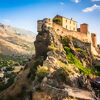
Corsica
Corsica is an island in the Mediterranean Sea belonging to France. Mountain in the sea, Corsica is also called Island of beauty, not without reason. One of the 18 regions of France, though it is also designated as a territorial collectivity, the diversity of its scenery, and its preservation from the aggressions of development and tourism, makes it one of the pearls of the Mediterranean sea.

Almería
Almere is a city and municipality in the province of Flevoland, the Netherlands, bordering Lelystad and Zeewolde. The municipality of Almere comprises the districts Almere Stad, Almere Haven, Almere Buiten, Almere Hout, Almere Poort (under construction) and Almere Pampus (design phase). Almere is the youngest city in the Netherlands: the first house was finished in 1976, and Almere became a municipality in 1984. It is the largest municipality in Flevoland with 184,405 citizens (7 July 2008), and the 8th largest in the Netherlands. In October 2007, the city council of Almere made agreements with the government to expand the city to 350,000 inhabitants by 2030.
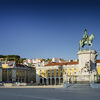
Lisbon
The capital of Portugal, Lisbon (Portuguese: Lisboa) has experienced a renaissance in recent years, with a contemporary culture that is alive and thriving and making its mark in today's Europe. Perched on the edge of the Atlantic Ocean, Lisbon is one of the rare Western European cities that faces the ocean and uses water as an element that defines the city. Lisbon enchants travellers with its white-bleached limestone buildings, intimate alleyways, and an easy-going charm that makes it a popular year-round destination.

Toulon
Toulon is a town in southern France and a large military harbour on the Mediterranean coast, with a major French naval base. Located in the Provence-Alpes-Côte-d'Azur region, Toulon is the capital of the Var department in the former province of Provence. Toulon is an important centre for naval construction, fishing, wine making, and the manufacture of aeronautical equipment, armaments, maps, paper, tobacco, printing, shoes, and electronic equipment. $$https://vimeo.com/5280139$$
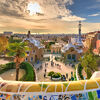
Barcelona
Barcelona – Spain's enchanting capital, second largest and most populous city. It is a huge city that vibrates with life, and there’s certainly not another city in the country to touch it for its sheer style, looks or energy. It is one of the world's leading tourist, economic, trade fair and cultural centers, and its influence in commerce, education, entertainment, media, fashion, science, and the arts all contribute to its status as one of the world's major global cities. Barcelona is home to masterpieces of many great architects – the most famous of which is Antoni Gaudí.
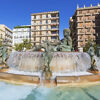
Valencia
Valencia is the most populous city of the Autonomous Community of Valencia and the third largest city in Spain, with a population of 809,267 in 2010. It is the 15th-most populous municipality in the European Union. It is integrated into an industrial area on the Costa del Azahar. Its historic centre is one of the largest in Spain, with approximately 169 hectares; this heritage of ancient monuments, views and cultural attractions makes Valencia one of the country's most popular tourist destinations!

Cagliari
Cagliari is an Italian municipality and the capital of the island of Sardinia, an autonomous region of Italy. Cagliari's Sardinian name ''Casteddu'' literally means castle. An ancient city with a long history, Cagliari has seen the rule of several civilisations. Under the buildings of the modern city there is a continuous stratification attesting to human settlement over the course of some five thousand years, from the Neolithic to today. Historical sites include the prehistoric domus de janas, very damaged by cave activity, a large Carthaginian era necropolis, a Roman era amphitheatre, a Byzantine basilica, three Pisan-era towers and a strong system of fortification that made the town the core of Spanish Habsburg imperial power in the western Mediterranean Sea. Its natural resources have always been its sheltered harbour, the often powerfully fortified hill of Monti Castru, the modern Casteddu, the salt from its lagoons, and, from the hinterland, wheat from the Campidano plain and silver and other ores from the Iglesiente mines. Today the city is a regional cultural, educational, political and artistic centre, known for its diverse Art Nouveau architecture and several monuments. It is also Sardinia's economic and industrial hub, having one of the biggest ports in the Mediterranean Sea, an international airport, and the 106th highest income level in Italy (among 8,092 comuni), comparable to that of several northern Italian cities. It is also the seat of the University of Cagliari, founded in 1607, and of the Primate Roman Catholic archdiocese of Sardinia, since the 5th century AD.

Portofino
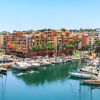
Monte Carlo
Monte Carlo, officially refers to an administrative area of the Principality of Monaco, specifically the ward of Monte Carlo/Spélugues, where the Monte Carlo Casino is located. Monaco has four traditional quarters - from west to east they are: Fontvieille (the newest), Monaco-Ville (the oldest), La Condamine, and Monte Carlo. Monte Carlo (literally "Mount Charles") is situated on a prominent escarpment at the base of the Maritime Alps along the French Riviera. Near the western end of the quarter is the world-famous Place du Casino, the gambling center which has made Monte Carlo "an international byword for the extravagant display and reckless dispersal of wealth". It is also the location of the Hôtel de Paris, the Café de Paris, and the Salle Garnier (the casino theatre which is the home of the Opéra de Monte-Carlo).

Cadiz

Mahon

Cartagena
Cartagena is a Spanish city and a majornaval station located in the Region of Murcia, by the Mediterranean coast, south-eastern Spain. The metropolitan area of Cartagena, known as Campo de Cartagena, has a population of 409,586 inhabitants. Cartagena has been inhabited for over two millennia, being founded around 227 BC by the Carthaginian Hasdrubal the Fair as Qart Hadasht, the same name as the original city of Carthage. Much of the historical weight of Cartagena in the past goes to its coveted defensive port, one of the most important in the western Mediterranean. As far back as the 16th century it was one of the most important naval ports in Spain, together with Ferrol in the North. It is still an important naval seaport, the main military haven of Spain, and is home to a large naval shipyard. The confluence of civilizations as well as its strategic harbour, together with the rise of the local mining industry is manifested by a unique artistic heritage, with a number of landmarks such as the Roman Theatre, the second largest of the Iberian Peninsulaafter the one in Mérida, an abundance of Phoenician, Roman, Byzantine and Moorish remains, and a plethora of Art Nouveaubuildings, a result of the bourgeoisie from the early 20th century. Cartagena is now established as a major cruise ship destination in the Mediterranean and an emerging cultural focus. It is the first of a number of cities that eventually have been named Cartagena, most notably Cartagena de Indias (Cartagena of the Indies) in Colombia.

Trapani
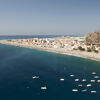
Motril
Motril is a town and municipality on the Mediterranean coast in the province of Granada, Spain. It is the second largest town in the province, with a population of 61,171 as of 2012. Motril is a growing dynamic city, a place of service where visitors feel at home, thanks to the great hospitality of its people. You can visit many places to have fun and meet new people. It also belongs to the Costa Tropical, a large region of the coast is very famous and touristic. Motril beaches can be small (bays) or large (like Playa Granada). The weather is usually good, so they are very popular during the summer by people from the surrounding as well as the interior regions.

Alcudia
Alcúdia is a municipality and township of the Spanish autonomous community of the Balearic Islands. It is the main tourist centre in the North of Majorca. It is a large resort popular with families. Most of the hotels are located in Port d'Alcúdia and Platja d'Alcúdia along the 14 km long beach that stretches all the way to Can Picafort. In Alcúdia the old town is well preserved with houses dating back to the 13th century. The old town is also surrounded by a medieval wall.









